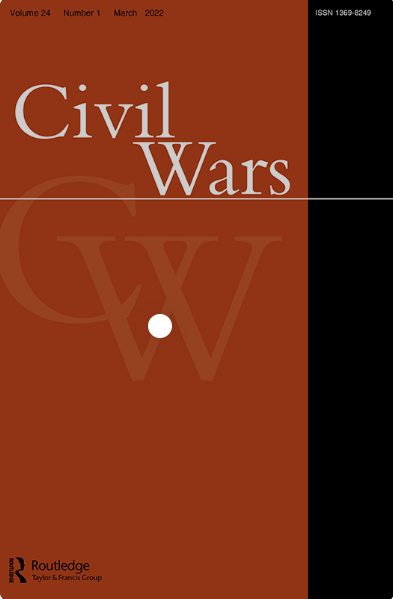Svante E. Cornell
Civil Wars,
Vol. 1 no. 3, 1998
 The many conflicts that have raged in the Caucasus since the end of the 1980s have often been depicted in the media and academia as basically religous in character. The religious differences between parties to conflicts are empjasized and often exaggerated. In particular, the Caucasus has been taken as an example of the 'clash of civilzations' supposedly under way. This article seeks to challenge this perception of the Caucasian conflicts, arguing that religion has played a limited role in conflicts that are actually ehnopolitical and territorial in character. The article argues that seldom are religious bodies of thinking used to legitimize conflict behaviour in this region -- there has been no Jihad in the Caucasus, for example -- nor has the politicization of the parties to a conflict been underpinned primarily by religious identity or theological perspetives. As such, religious conflict can not be spoken of. Furthermore ther has occured no rallying of outside powers along religious lines; quite to the contrary empirical evidence shows hat religious has had little impact -- especially when compared to ethnicity -- in the international ramifications of these conflicts.
The many conflicts that have raged in the Caucasus since the end of the 1980s have often been depicted in the media and academia as basically religous in character. The religious differences between parties to conflicts are empjasized and often exaggerated. In particular, the Caucasus has been taken as an example of the 'clash of civilzations' supposedly under way. This article seeks to challenge this perception of the Caucasian conflicts, arguing that religion has played a limited role in conflicts that are actually ehnopolitical and territorial in character. The article argues that seldom are religious bodies of thinking used to legitimize conflict behaviour in this region -- there has been no Jihad in the Caucasus, for example -- nor has the politicization of the parties to a conflict been underpinned primarily by religious identity or theological perspetives. As such, religious conflict can not be spoken of. Furthermore ther has occured no rallying of outside powers along religious lines; quite to the contrary empirical evidence shows hat religious has had little impact -- especially when compared to ethnicity -- in the international ramifications of these conflicts.



 What should be the United States’ strategy towards Central Asia, the Caucasus, and the region of Greater Central Asia (GCA) as a whole? Should it even have one? Unlike most other world regions, these lands did not figure in US policy until the collapse of the USSR in 1991. Though the new Baltic states entered Washington’s field of vision in that year, in those cases the Department of State could recall and build upon America’s relations with independent Estonia, Latvia, and Lithuania during the inter-war decades. For the US Government after 1991, GCA was defined less as sovereign states than as a group of “former Soviet republics” that continued to be perceived mainly through a Russian lens, if at all.
What should be the United States’ strategy towards Central Asia, the Caucasus, and the region of Greater Central Asia (GCA) as a whole? Should it even have one? Unlike most other world regions, these lands did not figure in US policy until the collapse of the USSR in 1991. Though the new Baltic states entered Washington’s field of vision in that year, in those cases the Department of State could recall and build upon America’s relations with independent Estonia, Latvia, and Lithuania during the inter-war decades. For the US Government after 1991, GCA was defined less as sovereign states than as a group of “former Soviet republics” that continued to be perceived mainly through a Russian lens, if at all.